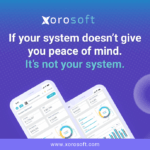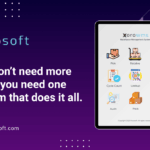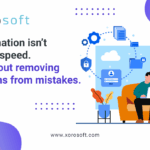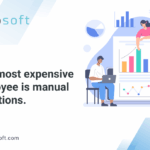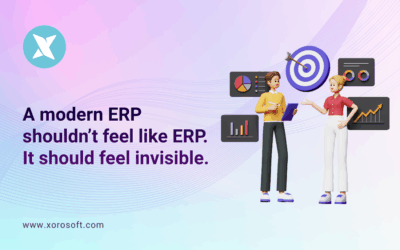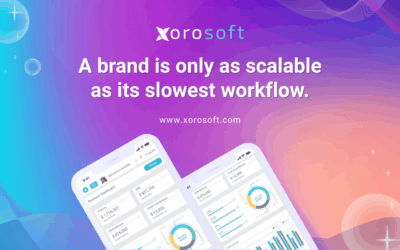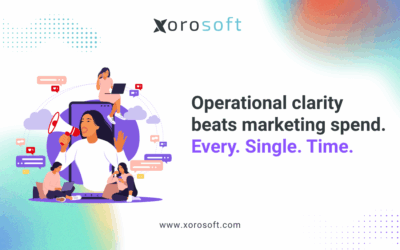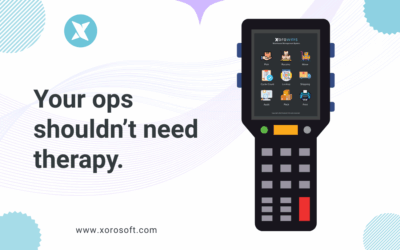
Introduction: The Evolution of Business Management Software
In the dynamic world of business management, software solutions have evolved tremendously over the years. Initially, tools focused on basic accounting functions, but as companies grew and their needs became more complex, the demand for comprehensive solutions increased. In my journey through various platforms, I have witnessed the transformation from rudimentary software to sophisticated ERP systems designed specifically for modern enterprises.
As organizations expand, they require more than just a tool for tracking finances. They need an integrated ERP system that can streamline operations across departments. This evolution has led to the emergence of more comprehensive solutions that not only facilitate accounting but also manage inventory, customer relations, human resources, and more. I believe that understanding these changes is crucial for any business looking to thrive in today’s competitive landscape.
With the rise of cloud technology, companies now have access to real-time data and analytics, enabling them to make informed decisions swiftly. In this article, I will explore how XoroERP has positioned itself as a superior choice compared to QuickBooks, particularly for growing businesses.
Understanding ERP Systems: A Comprehensive Overview
Enterprise Resource Planning (ERP) systems are integrated software platforms that manage and automate core business processes. They serve as a central hub for information, allowing various departments to share data seamlessly. From my perspective, the primary goal of an ERP system is to enhance efficiency and provide organizations with a competitive edge.
A well-implemented ERP solution encompasses multiple functionalities, including finance, supply chain, manufacturing, project management, and customer relationship management (CRM). Each module communicates with the others, eliminating data silos and improving overall workflow. For instance, when an order is placed, the system automatically updates inventory levels, generates invoices, and notifies the shipping department, all in real-time.
Moreover, an effective ERP system must be adaptable. As businesses grow, their needs will evolve, and their software should accommodate these changes. This adaptability is one of the defining features that differentiate successful ERP solutions from outdated ones.
The Limitations of QuickBooks for Growing Businesses
While QuickBooks has long been a staple for small businesses, it has notable limitations that become apparent as companies expand. Initially, it serves well for basic accounting tasks, but as organizations grow, they often encounter challenges that QuickBooks struggles to address.
One of the primary drawbacks I have observed is its limited capabilities for inventory management. For businesses dealing with a large volume of products, QuickBooks may fall short. It lacks advanced features such as multi-location inventory tracking or complex stock management, which are essential for businesses that require precise inventory oversight.
Additionally, QuickBooks can become cumbersome when it comes to handling multiple users or integrating with other systems. For growing businesses, collaboration is vital, and any software that hinders communication between departments can create inefficiencies. As I have seen firsthand, these limitations can lead to frustration and a significant drain on resources over time.
XoroERP: A Game-Changer in Business Management Solutions
Enter XoroERP, a robust solution designed with the needs of growing businesses in mind. In my experience, XoroERP stands out as a game-changer in the realm of business management solutions. It offers a comprehensive suite of tools that address various operational needs, making it an ideal choice for organizations looking to scale efficiently.
Unlike traditional accounting software, XoroERP provides an integrated approach that encompasses all facets of business management. From advanced inventory systems to streamlined accounting processes, it allows companies to manage their operations seamlessly. This holistic view is critical for decision-making and strategic planning.
Moreover, XoroERP is built with scalability in mind. Whether you are a small startup or an established enterprise, the system can grow with you. This flexibility ensures that businesses do not outgrow their software, avoiding the hassle and costs associated with migrating to a new system as they expand.
Key Features of XoroERP that Outshine QuickBooks
The features that XoroERP offers are tailored to meet the unique demands of growing businesses. I have found several key attributes that truly distinguish it from QuickBooks, making it a compelling choice for organizations aiming for sustainable growth.
- Comprehensive Inventory Management System: XoroERP provides advanced tools for managing inventory, including automated stock tracking, multi-location management, and real-time analytics. This level of detail is crucial for businesses with complex inventory needs, ensuring they never run out of stock or overstock items unnecessarily.
- Integrated Financial Management: Unlike QuickBooks, which often requires additional modules for advanced features, XoroERP offers all-in-one financial management capabilities. This includes budgeting, forecasting, and comprehensive reporting, all integrated into a single platform.
- User-Friendly Interface: I appreciate that XoroERP is designed with the user experience in mind. The intuitive interface makes it easy for teams to navigate, reducing the learning curve and enabling employees to become productive quickly.
- Customizable Modules: Every business is unique, and XoroERP recognizes this by offering customizable modules. Companies can select the features they need and scale as required, ensuring they pay only for what they use.
These standout features collectively contribute to a superior experience, making XoroERP an ideal ERP solution for businesses looking to enhance their operations.
Advanced Inventory Management with XoroERP
One of the standout features of XoroERP is its advanced inventory management capabilities. As someone who has navigated the challenges of inventory control, I can attest to the importance of having a robust system in place. This is especially critical for businesses that operate across multiple locations or handle a diverse range of products.
With XoroERP, businesses can track inventory levels in real-time, view historical data, and forecast future needs. This predictive capability allows companies to maintain optimal stock levels, reducing carrying costs while ensuring that customer demands are met without delay.
Additionally, XoroERP supports various inventory management methodologies, such as FIFO (First In, First Out) and LIFO (Last In, First Out), providing the flexibility that businesses require. This adaptability is something I have found lacking in other systems, particularly QuickBooks, which often limits options for more complex inventory needs.
Moreover, the integration of inventory management with other business functions, such as sales and accounting, creates a seamless workflow. This interconnectedness ensures that all departments are on the same page, further enhancing operational efficiency.
Streamlined Accounting Processes in XoroERP
When it comes to accounting, XoroERP excels in streamlining processes that often become cumbersome in other systems. As someone who has worked with various accounting software solutions, I can confidently say that XoroERP simplifies financial management without sacrificing depth or accuracy.
The platform automates many routine accounting tasks, such as invoicing, expense tracking, and financial reporting. This automation not only saves time but also reduces the likelihood of human error, a common issue I have seen in manual processes.
Additionally, XoroERP provides comprehensive reporting features that allow for in-depth analysis of financial performance. Users can generate customizable reports that focus on specific metrics, providing insights that are essential for strategic planning and decision-making.
Furthermore, the integration of accounting with other business functions within XoroERP means that financial data is always up-to-date and relevant. This real-time access to financial information empowers businesses to make informed decisions quickly, a crucial advantage in today’s fast-paced market.
Scalability and Flexibility: Why XoroERP is Ideal for Growth
Scalability is a key consideration for any growing business, and XoroERP is designed with this principle at its core. As companies expand, their operational needs change, and having a flexible ERP system is essential to accommodate these shifts.
XoroERP allows businesses to add new modules as needed, whether it’s an additional inventory feature, a new accounting tool, or a CRM component. This modular approach means that organizations can start with what they need today while retaining the option to expand as they grow.
In my experience, this flexibility significantly reduces the risk of obsolescence—something that can plague businesses using more rigid systems like QuickBooks. Companies that transition to XoroERP can rest assured that their software will continue to serve them as they evolve.
Moreover, the cloud-based nature of XoroERP ensures that businesses can access their data from anywhere, facilitating remote work and collaboration. This adaptability is crucial for modern businesses, especially in a landscape that increasingly values flexibility and responsiveness.
Making the Switch: Transitioning from QuickBooks to XoroERP
Transitioning from QuickBooks to XoroERP may seem daunting, but in my view, the benefits far outweigh the challenges. The process can be streamlined with careful planning and the right support. I have seen businesses successfully navigate this transition, and I believe that with the right approach, it can be a smooth experience.
Firstly, it’s essential to conduct a thorough assessment of your current processes and identify the specific needs your business has. This assessment will help you determine which features of XoroERP are most relevant and how to configure the system accordingly.
Next, data migration is a crucial step. XoroERP provides tools to facilitate the transfer of data from QuickBooks, ensuring that you retain your historical records. During this phase, it’s vital to validate data accuracy and completeness to avoid issues down the line.
Finally, training employees on the new system is paramount. XoroERP offers resources and support to help teams adapt to the new platform. In my observation, investing in training pays dividends, as it leads to increased productivity and a smoother transition overall.
The Future of ERP: Emerging Trends and XoroERP’s Role
As we look towards the future of ERP systems, several emerging trends are shaping the landscape. From my perspective, XoroERP is well-positioned to leverage these trends and continue delivering value to businesses.
- AI and Machine Learning: The integration of artificial intelligence (AI) and machine learning into ERP systems is becoming increasingly prevalent. These technologies can analyze vast amounts of data, providing insights that drive better decision-making. I anticipate that XoroERP will continue to innovate in this area, enhancing its analytics capabilities.
- Mobile Accessibility: With the rise of remote work, mobile accessibility is more important than ever. Users expect to access their ERP systems from anywhere, and XoroERP’s cloud-based solution positions it as a frontrunner in meeting this demand.
- Increased Customization: Businesses are seeking tailored solutions that cater to their unique needs. XoroERP’s modular design allows for high levels of customization, ensuring that organizations can adapt the system to their specific requirements.
- Enhanced Collaboration Features: As teams become more dispersed, collaboration tools integrated into ERP systems will be essential. I believe that XoroERP will continue to focus on enhancing these features, making it easier for teams to work together efficiently.
By embracing these trends, XoroERP is not only keeping pace with industry changes but also setting the standard for what businesses should expect from an ERP system.
Conclusion: Embracing XoroERP for Sustainable Business Growth
In conclusion, XoroERP presents a compelling alternative to QuickBooks for growing businesses. Its advanced features, scalability, and flexibility make it an ideal ERP solution for organizations seeking to enhance their operations. Throughout this article, I have shared my insights on various aspects of XoroERP, demonstrating how it can help businesses streamline processes and drive growth.
As the business landscape continues to evolve, I believe that choosing the right ERP system is more critical than ever. XoroERP stands out not only for its comprehensive capabilities but also for its commitment to supporting businesses as they grow.
If you’re considering making the switch or simply want to learn more about what XoroERP can offer, I encourage you to Book a demo with xorosoft. Experience firsthand how this powerful ERP system can transform your operations and pave the way for sustainable business success.
